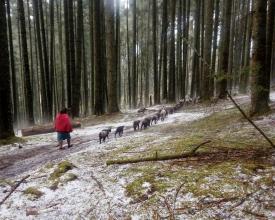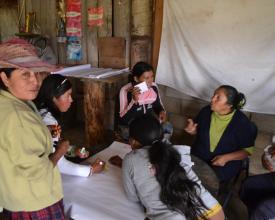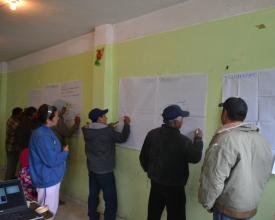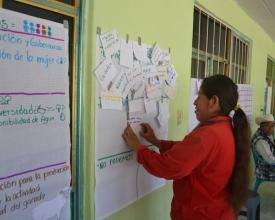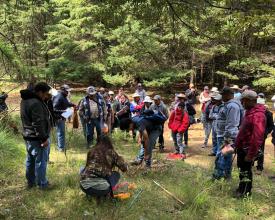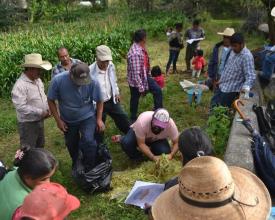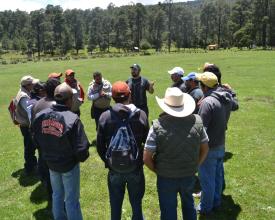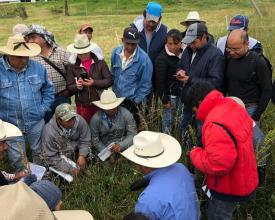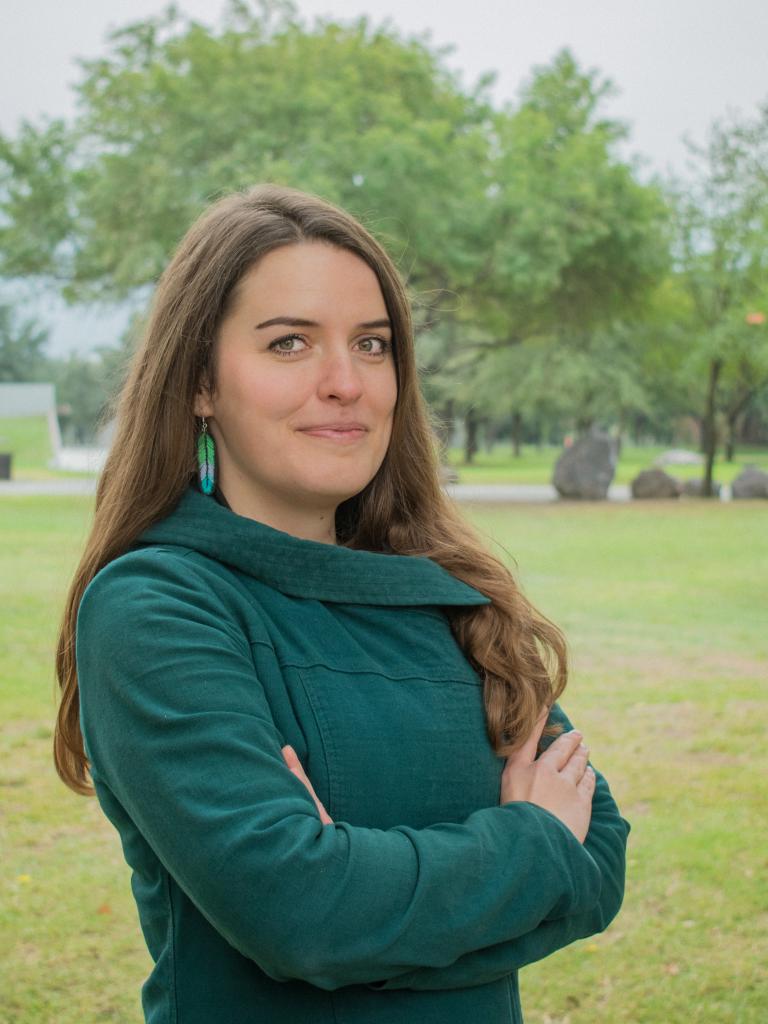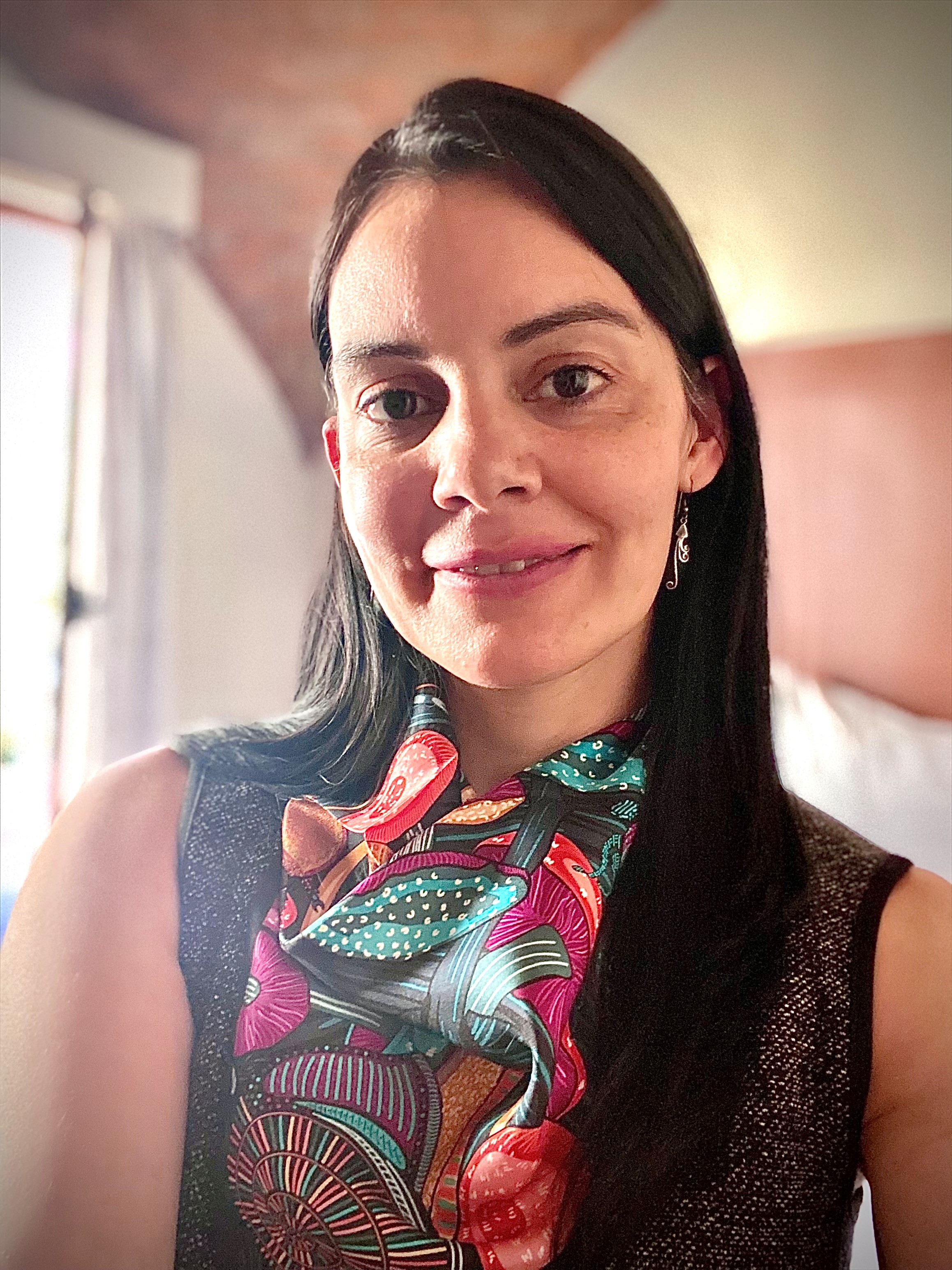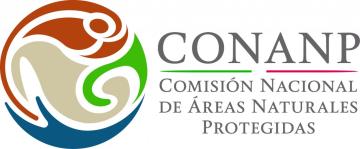
Strengthening community management and livestock farmers' livelihoods for conserving high mountain forests and grasslands of Mexico
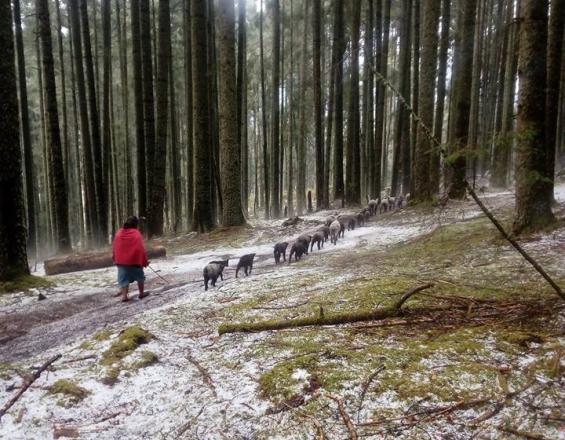
The high mountain region in the transmexican volcanic belt has faced great amounts of pasture degradation, deforestration and biodiversity loss. These losses were the product of years of bad agricultural practices, technology exclusion and underrated ecosystem services. Such practices have threatened the rural livelihoods causing a damaged inter-community relationship. Following these concerns a project was implemented in 7 different communities within the natural protected areas of the transmexican volcanic belt. The project focussed on an "ecosystem-based approach" known as "EbA". The main objective of the project was to reconstruct the local relationships within the communities so people could value ecosystem services through a more holistic perspective, so they could have a better understanding of nature and its importance. Through these main drivers the project aimed to increase the ecological resilience of the area and mitigate climate change impacts.
Context
Challenges addressed
The main challenges faced were: land and forest degradation, biodiversity loss, social conflicts, unemployment and poverty, extreme climatic conditions (drought and frost), lack of alternative income opportunities, lack of infrastructure, gender inequality, productive exclusion and technological exclusion.
Location
Process
Summary of the process
The buildiing blocks are integrated in order to achieve an approach known as Comprehensive and Holistic Management of Natural Resources, which is a variation of landscape management and ecosystem restoration. The first block generates a baseline through the analysis of social vulnerability to climate impacts at the local level in natural protected areas. Based on the above, generated alternatives aim to unite ecological approaches to social, economic and cultural considerations such as governanc and inter-community relations. The proposals are created in the Farmer Field Schools (FFS), working jointly with the farmers and facilitators. Through improving previous practices, it reduces the pressure on the rangelands and forests of the region. These practices are the means that support communities and help them improve their productivity and family incomes. Furthermore, actions regarding food conservation are integrated to avoid long periods of food shortage. Guidance regarding proper use of fire in grasslands and forests is also part of the project and aims to reduce the pressure on biodiversity in the high mountains regions.
Building Blocks
Analysis of the economic and socio-environmental situation
The analysis allowed us to create alternatives for the management of the territory. Here, a participatory commitment was generated with the communities, in order to understand the main vulnerabilities of protected areas to climate change. We use tools, such as the Analysis of Social Vulnerability to Climate Impacts at the local level within protected areas of the CONANP (National Commission of Protected Natural Areas). This tool helped to identify the level of access or control over natural resources and the collective capacity of the inhabitants to adapt to adverse changes.
Enabling factors
- Active participation and collaboration with the community
- Technical support from experts in social approaches, livestock and natural resource management
- Willingness of the community to form a work team and form resource management committees which were granted authority to act on behalf of the community
-Ability to identify the needs, vulnerabilities and capacities of women from the beginning of the project and thus to be able to integrate them into the design, management, implementation and evaluation of projects
Lesson learned
- We must motivate people to obtain changes in their development processes.
- Planning under a holistic approach helps decision makers to reduce the risks caused by livestock activities.
- Empowering women herders strengthens the livelihoods of mountain communities
- Working under a social inclusion approach helps people to benefit from the advantages of teamwork, to strengthen their social network and improve their coexistence in communities.
Capacity building through the creation of Farmer Field Schools
Farmer Field Schools (FFS) help ranchers learn through observation and experimentation within their own pens and grazing areas. The FFS strengthen the technical and functional capacity of the participants. In addition, they promote the creation of inclusive community development, through the empowerment of women and gender equality and by creating mutual trust within the community.
Enabling factors
- Technical support from a professional with knowledge regarding productivity, social aspects and natural resource management
- Have tools such as the GRAMSE plus (Acronym in Spanish for Genetics, Reproduction, Food, Management, Health and Economy plus governance, gender equity, administration, bi-trade and regeneration), for the development of the processes
- Leadership and organization of the community for the fulfillment of agreements
Lesson learned
- Sustainable livestock practices can improve the income of various families
- Sustainable livestock is a mean to improve high mountain ecosystem services
- Good livestock practices can serve as guides towards sustainable and friendly livestock farming
Holistic management of grasslands and forests to improve the quality of life of communities
Holistic management can repair the cycles of water, minerals, organic matter and microbiology in mountainous territories. In addition, we can generate higher profitability, improve animal and plant health, and strengthen forest and grassland restoration in a more sustainable way. Well-managed livestock is the solution to many interconnected problems, starting with climate change, reducing the production of greenhouse gases and as carbon sinks. All of the above must be planned and developed with families in mind, since they are a fundamental axis for a successful implementation.
Enabling factors
- Commitment of local actors who participated in the implementation and decision-making of the project
- Livestock work measures should take into account the impact that they can have on key ecosystem services
- CONANP and communities coordinated work
- Strenghtening processes that extended the capacities of local actors and the protected areas personnel, so they could implement actions in livestock farming with an AbE approach.
- Dialogue and awareness processes at the local level to improve natural resources conservation
Lesson learned
- Commitment and willingness of all actors involved in order to establish agreements to create a sustainability process
- The relationship of the communities with the ecosystem services, as well as the social fabric in a community must be taken into account for a adecquate implementation
- It is necessary to create emotional awareness for the population and all the actors involved, seek coordinated work with the authorities, and dedicate sufficient time to strengthen activities through appropriate organization
- Communities have now various projects including those of dairy products, sheep production, reforestation, tourist proposals, among others.
- The support and accompaniment of institutions such as the CONANP resulted necessary to support the community in the management of the protected area and in the generation of alternative proposals that could generate income opportunities for families
Impacts
The project implementation topics were: community social inclusion, gender equity, participation and capacity building,
grazing management and, finally, the introduction of new types of forages that reduce vulnerability due to lack of food for livestock in the region.
Beneficiaries
7 comunities within and outside the natural protected areas benefited; 682 women and men acquired better management practices, which they implemented to achieve better grazing and livestock farming practices.
Sustainable Development Goals
Story
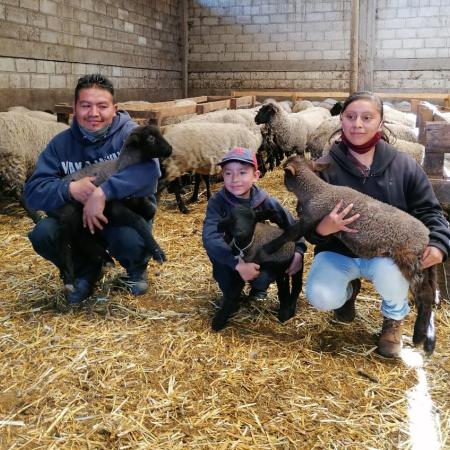
The family Hernandez Ambrosio has dedicated their entire lives into sheep production within the protected area known as "Izta-popo". They have followed this practice as a mean to cover family expenses. Before the project was implemented, women needed to graze for more than 8 hours a day through the forests and pastures. Under this system, the family maintained 150 animals without understanding their productive cycles, having a 50% production out of the total capacity and having sales less than once a year. In addition, these grazing methods led to extensive deforestation and overexploitation of natural resources. These producers are highly vulnerable to droughts, excess rain in short periods, frosts and hailstorms that control their production models.
In 2017 the project, Conservation of Biodiversity in the Neovolcanic Axis implemented by the Natural Protected Areas Commission of Mexico with support of the GIZ, started a collaborative project. This project consisted on the characterization of livestock in mountain areas. In addition, actions were implemented to decrease vulnerability to climate change in order to improve current production, as well as create more sustainable alternatives. As well, the project promoted gender equity and inclusion, to create better intra-family relations and community relations.
Today the family Hernandez has benefited through the trainings related to sustainable livestock farming and better grazing practices. They have created a holistic perspective of the natural resources and have increased the aggregated value given to these. They have decreased the quantity of animals needed for production, increasing productivity. They diversified agricultural crops and have carried new methods for forage conservation to decrease climate change vulnerability. In addition, they have made more profitable income through livestock production which has converted this activity to become a more inclusive practice.
Finally, the project increased productivity by reducing the quantity of animals needed, it reduced opportunity cost by decreasing grazing time to make it more productive, and as a product, these increased the time farmers spent with their families. Now farmers have less losses, selling at first $1,500MXN, and now $2,750MXN per sheep. Clients have also recognized the aggregated value of the producers as they now follow sustainable practices.

